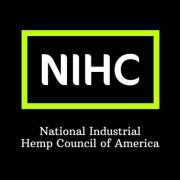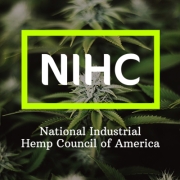
Shawn Hauser discusses the Hemp Road Traveled and the Road of Infrastructure Ahead
Shawn Hauser is partner in Vicente Sederberg LLP, as well as chair of the firm’s Hemp and Cannabinoids Department, where she helps cannabis and hemp businesses navigate the intersection – and often collision – between state and federal law. Her practice helps companies comply with hemp laws, food and drug laws, regulations and licensing, as well as provides them general business representation. “This is unique to our practice,” says Hauser. “By providing clients compliance guidance with state hemp and cannabis laws and an understanding of how cannabis laws may evolve, we help guide them into a more stable and successful future.”
Hauser has been in the cannabis space for almost 12 years. “After graduating from college at the University of Texas, I had a passion to get involved with cannabis reform. I come from multi-generations of psychiatrists who have been dedicated to mental health care, and understood that cannabis is often a safer and more effective treatment to treat many mental health conditions, but that the law needed to change to allow doctors to utilize and understand cannabis as medicine.”
Hauser came to Colorado in 2008 in the early days when caregivers of patients who were receiving medical cannabis treatment lacked a supporting legal system. “I began work on the legalization campaign when I met the partners from McAllister, Darnell & Gottlieb PC who were also working on the issue. They built the firm around it in 2010 and I joined as an associate attorney,” Hauser says. The firm was one of the first marijuana-focused law firms in Colorado.
 In 2013, Hauser joined Vicente Sederberg where she continued her work. The firm set out to help shape laws that would work to create a responsible cannabis industry and included hemp. “In 2012, founders of the law firm were key drafters of Colorado’s Amendment 64 which legalizes marijuana possession for adults under state law and requires the state to establish a regulatory structure for retail marijuana. In that framework, we included the state legalization of industrial hemp.”
In 2013, Hauser joined Vicente Sederberg where she continued her work. The firm set out to help shape laws that would work to create a responsible cannabis industry and included hemp. “In 2012, founders of the law firm were key drafters of Colorado’s Amendment 64 which legalizes marijuana possession for adults under state law and requires the state to establish a regulatory structure for retail marijuana. In that framework, we included the state legalization of industrial hemp.”
From that foundation, the firm has built a thriving hemp practice, which grew exponentially with the passage of 2018 Farm Bill. “In the hemp department, we do a great deal of policy work all over the country in addition to legal services, such testifying to the FDA as to the regulation of CBD, advising states in how to regulate hemp-derived cannabinoids in FDA’s absence, and addressing best practices for consumer safety,” says Hauser. “One of our goals is to see the FDA step up. We are passionate to ensure that hemp products are regulated appropriately and responsibility, and appreciate that the federal regulation of hemp sets the table for how all cannabis may be most appropriately regulated.”
“One of our goals is to see the FDA step up. We are passionate to ensure that hemp products are regulated appropriately and responsibility, and appreciate that the federal regulation of hemp sets the table for how all cannabis may be most appropriately regulated.”
“We do a lot of work with other industry stakeholders and have key alliances that complement our regulatory practice, such as our close alliance with Kleinfeld, Kaplan and Becker,” says Hauser of the Washington D.C.-based law firm who focuses their practice on Food & Drug Law and Advertising Law.
In the meantime, while all that comes to fruition, the firm helps clients navigate the patchwork of state regulations for cannabis and hemp. There are a lot of moving parts and complicated federal, state, and local laws relevant to setting up an industrial hemp or cannabis-based business.
“Usually, a client comes to us because they are in hemp supply chain, as a farmer, retailer or brand, and they want to know how to be compliant at the federal level in the light of the Farm Bill, as well as with the FDA and within the complexity of state laws,” says Hauser. She notes that businesses have more to consider than a normal business. They must set up proper corporate entities, negotiate contracts, ensure that business insurance is adequate (watching for exclusions unique to the industry), review marketing materials including product packaging and labeling, develop products within tight legal parameters, complete various safety studies, manage ingredients properly, set up proper production and supply and distribution chains that are complaint, and mitigate the unique risk inherent in the cannabis industry. There are also the environmental laws to be followed, especially on industrial hemp production. It is quite complex.
“The good news is that Colorado continues to serve as a model state for others to follow,” says Hauser. “We are leading the way in hemp. Our governor has done an outstanding job to help us get leaps ahead from when we started. We have a level of infrastructure, agency expertise, and informed and effective rulemaking processes that is unparalleled, with state leadership and industry dedicate to having the most responsible and effective robust hemp program. Governor Polis has organized stakeholder groups for every aspect. Top universities and ag folks are quickly taking things to next level. We are bolstering state industrial hemp companies through incentives to build processing facilities in Colorado to make things like concrete and hemp plastics, all game changing for the planet and industry.”
Once the federal framework is complete, Hauser sees the U.S. as a major market on the world hemp stage. But the road to accomplishing this is slowly working its way out in equalizing state to state in the rules for production and sale of consumer products, and in developing the infrastructure and research needed to support a true industrial hemp industry. “Hemp having varying sets of rules for production and sale state to state is one the industry’s biggest barriers. The failure of the FDA to effectively regulate products leaves an emerging market without regulation to guide it,” she says.
“Right now, with CBD and consumable hemp product regulations, many states regulations conflict with federal law, but federal law is generally not enforced absent companies making serious drug claims,” says Hauser. It makes it difficult for states to enforce, creates unique legal exposure to businesses who follow federal lay but violate state law or vice versa. It also makes investors leery, creating banking and insurance conflicts.
 In the future that Hauser is advocating for she sees a healthier hemp world. “I see federal legalization and development of a vibrant U.S. cannabis and hemp industry that includes broader acceptance of cannabis as medicine and as an alternative to alcohol, as well as a healthy dietary supplement, ingredient in foods and cosmetics as appropriate, and a natural alternative to more harmful ingredients currently used. Hemp is revolutionary and can be used in animal feed, plastics, fuel, all kinds of products. It can have a role in reversing climate change. There are so many uses, we have only seen the tip of the iceberg.”
In the future that Hauser is advocating for she sees a healthier hemp world. “I see federal legalization and development of a vibrant U.S. cannabis and hemp industry that includes broader acceptance of cannabis as medicine and as an alternative to alcohol, as well as a healthy dietary supplement, ingredient in foods and cosmetics as appropriate, and a natural alternative to more harmful ingredients currently used. Hemp is revolutionary and can be used in animal feed, plastics, fuel, all kinds of products. It can have a role in reversing climate change. There are so many uses, we have only seen the tip of the iceberg.”








 Hall of Fame Football Coach Lou Holtz took football powerhouse, Notre Dame, from a 5-6 win/loss record in 1985 to a National Championship three years later. Incredibly enough, he is maybe even better known as a world renowned motivational speaker. One great quote from Coach Holtz stands out and is always relevant. He said, “I never learn anything talking. I only learn things when I ask questions.” It’s particularly relevant as NIHC advocates on behalf of the industry.
Hall of Fame Football Coach Lou Holtz took football powerhouse, Notre Dame, from a 5-6 win/loss record in 1985 to a National Championship three years later. Incredibly enough, he is maybe even better known as a world renowned motivational speaker. One great quote from Coach Holtz stands out and is always relevant. He said, “I never learn anything talking. I only learn things when I ask questions.” It’s particularly relevant as NIHC advocates on behalf of the industry.




